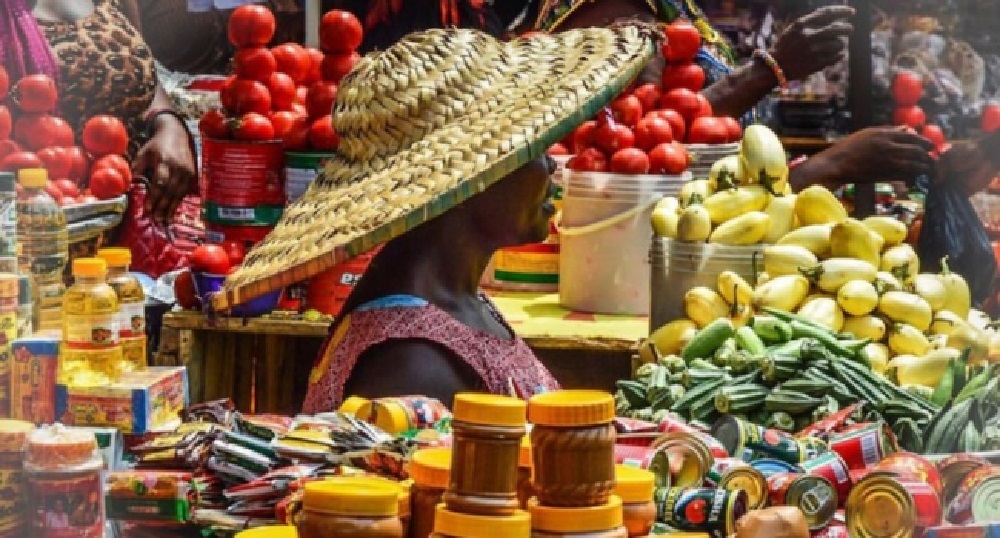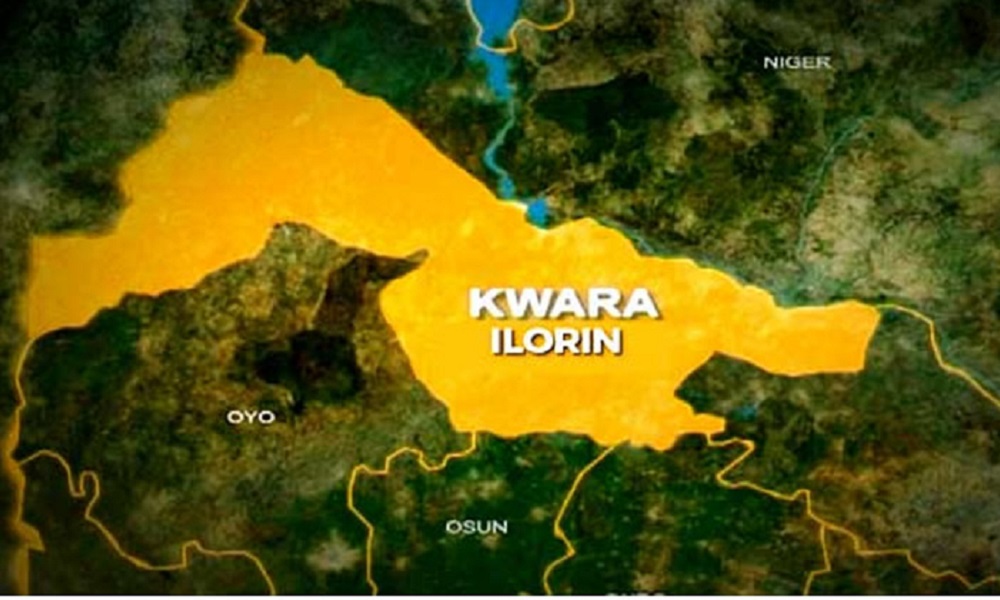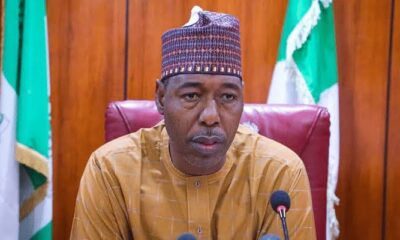News
FCT, Lagos, 25 others to face food crisis – Report

By Francesca Hangeior
A report, Cadre Harmonisé (CH) has revealed that approximately 33.1 million people, including 514,474 internally displaced persons (IDPs) in the Federal Capital Territory (FCT), Lagos and states are projected to experience a food crisis or worse (CH Phase 3) between June and August 2025.
The states identified as being affected include Sokoto, Zamfara, Borno, Adamawa, Yobe, Gombe, Taraba, Katsina, Jigawa, Kano, Bauchi, Plateau, Kaduna, Kebbi, Niger, and Benue.
The report also highlighted that Cross River, Enugu, Edo, Abia, Kogi, Nasarawa, Kwara, Ogun, and Rivers will be affected.
The CH report, a food and nutrition security analysis produced by the Federal Ministry of Agriculture and Food Security with technical support from the United Nations Food and Agriculture Organization (FAO) and other partners, released also noted that about 25 million people, including 422,686 IDPs, are currently in a state of food crisis or worse from October to December 2024.
Regional Breakdown of crisis levels projected that an estimated 1.3 million people are expected to face a food crisis in Adamawa, two million in Borno while approximately 1.6 million people are projected to face critical food shortages mid-2025.
The CH report also highlighted severe malnutrition levels in Northeast and Northwest regions, estimating that nearly 5.44 million children aged 0-59 months are likely to suffer from acute malnutrition from May 2024 to April 2025.
This figure includes 1.8 million cases of Severe Acute Malnutrition (SAM) and 3.7 million cases of Moderate Acute Malnutrition (MAM). Additionally, about 787,000 pregnant and lactating women are expected to need urgent nutrition support.
From May to September 2024, it revealed that more than half of the 133 Local Government Areas (LGAs) analysed were classified as IPC Acute Malnutrition (AMN) Phase 3 or higher. Northeast Nigeria had 10 LGAs in IPC AMN Phase 4 (Critical) and 21 in Phase 3 (Serious), while in Northwest 24 local government areas were classified as critical and 29 as serious.
The report however attributed the malnutrition crisis to factors such as insufficient food quantity and quality, inadequate feeding practices, poor health services, high disease prevalence, and low health-seeking behavior.
It further noted that economic challenges, compounded by food insecurity, limited water, sanitation, and hygiene (WASH) services, and security issues from ongoing conflict and displacement, are exacerbating the crisis.
Key drivers of food and nutrition insecurity, it said, are high cost of food and non-food items, climate shocks, and rising fuel prices which are currently affecting household food consumption and livelihoods.
FAO Nigeria and ECOWAS representative, Tofiq Braimah, stressed that Nigeria is facing “unprecedented times affecting livelihoods and food and nutrition security of vulnerable populations.”
He noted that the CH workshops aim to assess food security data to identify at-risk populations and propose measures to prevent food crises or further escalation.
In his remarks, Permanent Secretary of the Federal Ministry of Agriculture and Fod Security, Temitope Fashedemi noted that with the spike in fuel prices, transportation costs have soared, squeezing farmers profit margins and potentially driving up food prices for consumers.
Fashedemi also noted that these challenges and the daunting insecurity situation which has continued to threaten Nigeria’s food and nutrition security, have led to disruptions in food system (food production, distribution, marketing and even stocking mechanisms), resulting in poor consumption patterns among several households especially, in areas affected by insecurity.
He however pledged government assurance and commitment to upholding and utilising the outcome and recommendations proffered from the workshop in implementing food and nutrition security interventions.
“We also recommend that these results be adopted for planning and implementation of food and nutrition security interventions across the federal MDAs, 26 CH states, the humanitarian community and among allpartners operating in Nigeria.
News
FG extends contactless biometric passport to US, Mexico, Jamaica, Brazil

By Francesca Hangeior
The Federal Government has unveiled the second phase of its contactless biometric passport application system across its four missions in United States, Mexico, Jamaica and Brazil.
The Nigeria Immigration Service NIS disclosed this in a tweet on its ‘X’ handle signed by Service Spokesman, ACI AS Akinlabi.
The statement reads; “ain continuation of the phased Roll-Out of the Contactless Biometric Passport Application System across Nigerian Missions abroad, the Nigeria Immigration Service under its
Comptroller General, Kemi Nanna Nandap wishes to inform the General public especially Nigerians in the Diaspora that it is implementing the next stage of the roll-out across the following countries.
“The Application System, which is currently available on Google Play Store (NIS Mobile), is designed to allow Nigerians to renew their passports without visiting any Passport Centre for Biometrics enrollment. The Apple Store version will be onboarded shortly and an enhanced version of the NIS Mobile App for both Android and iOS users will be deployed to further improve users’ experience and accessibility.
“With this roll-out, the Service further informs the General public that the Contactless Passport App is now available in Canada, the USA, Mexico, Jamaica, Brazil, Europe, and Asia. It is yet to be rolled out in Australia and Nigeria, a future date will be announced for both countries in due course.
“The Service remains committed to innovative and efficient Service Delivery to Nigerians anywhere in the world”.
News
Eight Kwara TESCOM candidates fail drug test, lose jobs

By Francesca Hangeior
At least eight of the 1,800 candidates shortlisted for teaching positions under the Kwara State Teaching Service Commission have been disqualified after testing positive for banned substances.
This was disclosed in a statement on Monday by the TESCOM Press Secretary, Sam Onile, who quoted the Chairman of the Commission, Bello Abubakar.
According to the statement, the disqualified applicants tested positive for drugs, including benzodiazepine, tramadol, cotinine, marijuana, and amphetamine.
The tests were conducted by the National Drug Law Enforcement Agency with support from the state government.
Abubakar said the affected candidates would be replaced by the next best-performing applicants from their respective local government areas.
“A major implication of this development is that the affected individuals will be replaced by the candidates who are next to them in performance from their respective local government areas,” the statement said.
“The idea is to send an unmistakable message about the state government’s zero tolerance for drug abuse. We have a duty of care not to expose little children to drug abuse under any circumstances.”
The TESCOM chairman praised AbdulRazaq for insisting on a merit-based recruitment process, noting that the governor had again demonstrated fairness and commitment to quality education in the state.
News
Katy Perry, others roar into space on all-woman flight

By Francesca Hangeior
Pop star Katy Perry is now the biggest name in an all-woman group set to touch the edge of space Monday, roaring into the cosmos on one of billionaire Jeff Bezos’s rockets.
The “Firework” and “California Gurls” singer lifted more than 100 kilometers (60 miles) above the Earth’s surface in a vessel from Blue Origin, the space company owned by the Amazon founder.
Five other women, including Bezos’s fiancee Lauren Sanchez, joined the flight that blasted off from western Texas.
Their fully automated craft rose vertically before the crew capsule detaches mid-flight, later falling back to the ground slowed by parachutes and a retro rocket.
Monday’s mission is the first all-woman space crew since Valentina Tereshkova’s historic solo flight in 1963.
It is also the 11th sub-orbital crewed operation by Blue Origin, which has offered the space tourism experiences for several years.
The company does not publicly communicate the price of trips made possible by its New Shepard rocket.
Lasting around 10 minutes, the flight brough the passengers beyond the Karman line — the internationally recognised boundary of space.
There was a brief period when the women could unbuckle from their seats and float in zero gravity.
Perry recently told Elle magazine that she was taking part “for my daughter Daisy,” whom she shares with actor Orlando Bloom, “to inspire her to never have limits on her dreams.”
“I’m just so excited to see the inspiration through her eyes and the light in her eyes when she sees that rocket go, and she goes back to school the next day and says ‘Mom went to space’,” Perry added.
She said in a separate video posted to Instagram that she was shocked to discover during space training that the capsule she will travel in was named the “Tortoise” and decorated with a “feather” design — the two nicknames her parents have for her.
“There are no coincidences and I’m just so grateful for these confirmations and so grateful that I feel like something bigger than me is steering the ship,” Perry said in the video.
-

 News23 hours ago
News23 hours agoTinubu’s ugly past shores up as US Judge orders DEA, FBI to release files
-

 News11 hours ago
News11 hours agoAutonomy: 774 LGs challenge FG, states in court Tuesday
-

 Sports22 hours ago
Sports22 hours agoJust in: Newcastle pummel Man United 4-1
-

 News4 hours ago
News4 hours agoRivers women rally in support of state of emergency
-

 News22 hours ago
News22 hours ago2027: Atiku’s Opposition Front is a mission impossible-Wike declares
-

 News23 hours ago
News23 hours agoSAD! Another Christian Chukwu’s team mate, Charles Bassey is dead
-

 News11 hours ago
News11 hours agoZulum orders arrest, offers house, scholarship to abused boy in viral video
-

 News22 hours ago
News22 hours agoChristian Chukwu’s Death A Monumental Tragedy— Hon Nnaji






